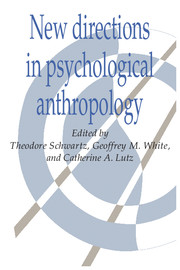Introduction
Published online by Cambridge University Press: 05 June 2012
Summary
While once almost synonymous with American cultural anthropology, psychological anthropology remains one of the largest subdisciplines of the field. It also remains the field most centrally concerned with putting people and experience into theories of culture and society. Increasingly more diverse in their approaches and interests, psychological anthropologists have been energized by a series of recent debates and by historical and institutional factors contributing to a renewed interest in the field. The chapters in this book, which emerged out of several years of organized reassessment of the field, reflect on an ongoing revitalization indexed by numerous recent collections focusing on the intersection of culture and psychology (e.g. Lee 1982; Marsella, DeVos, and Hsu 1985; Shweder and LeVine 1984; Stigler, Shweder, and Herdt 1990; White and Kirkpatrick 1985).
These theoretical and institutional changes have together facilitated more dialogue within the subdiscipline as well as with other kinds of anthropologists. The short history of these changes could be written in many ways but would include the development of interpretive approaches to culture compatible with (and challenging to) clinical and Freudian perspectives; the reflexive turn in methodology which has raised the question of how North American ideologies of self and person might structure our thinking as a discipline and as enculturated human beings doing fieldwork; the breakdown of monolithic views of culture which has encouraged person-centered ethnographic approaches (e.g. LeVine 1982); and narrative experimentation in ethnographic presentation, some of the earliest examples of which dealt with classical issues in psychological anthropology (e.g., Briggs 1970; Crapanzano 1980; Riesman 1977; Shostak 1981).
- Type
- Chapter
- Information
- New Directions in Psychological Anthropology , pp. 1 - 18Publisher: Cambridge University PressPrint publication year: 1993

